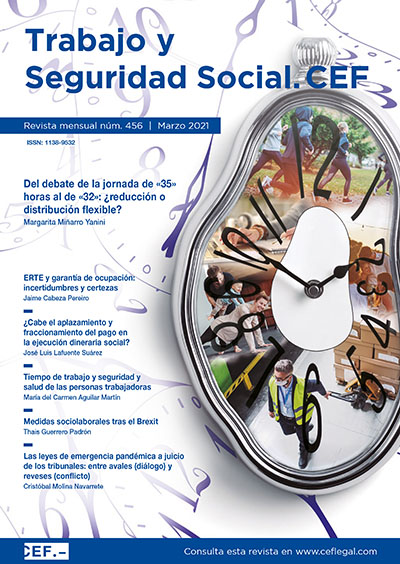Pandemic emergency laws as judged by the courts: between endorsements (dialogue) and setbacks (conflict)
DOI:
https://doi.org/10.51302/rtss.2021.2354Keywords:
force majeure, factum principis, COVID-19, recoverable paid leave, null dismissal, occupational risk preventionAbstract
The cataract of emergency laws enacted to meet the needs of employment regulation is leaving an immense ocean of interpretive and application problems. These regulatory deficiencies are contributing to intense judicial conflict and extreme legal insecurity. This is the case for a short time since judicial solutions are foreseeable for companies and workers. After the months of practically exclusive domain of the criteria of political-governmental authority, now comes the time of judicial control of that emergency legislation. This study makes a complete review, with an expository and critical scope at the same time, of the first answers given, often with disparate interpretative criteria, also of jurisdictional social and economic policy, by jurisprudential doctrine and by the judicial one to the most critical points of the emergency laws on labor and social security.


















